Narendra
Modi addressed a large gathering on the banks of Ganga during his first
visit to this ancient temple town after winning the Varanasi seat by a
huge margin of 3.7 lakh votes.
New Delhi: Narendra
Modi, the man expected to become India's next prime minister, swept
into the capital Saturday morning in a triumphal procession to the
colonial bungalows here that still serve as India's power center and
promised that he "will try to make India self-reliant and strong."
Modi,
who engineered a historic victory over India's long-governing Gandhi
family, was surrounded at several places along the route by well-wishers
who chanted paeans to him. When he stopped to greet the crowds, they
showered him with rose petals.
Modi gave a brief speech at the
headquarters of the Bharatiya Janata Party, which on Friday won a
decisive majority in Parliament. It is the first time in India's history
that any party other than the Indian National Congress Party, led by
the Gandhi family, has managed such a feat.
"I am thankful to you for the way in which you received me with so much gratitude from the airport," Modi said.
After
a meeting of top party members, Modi departed for Varanasi, the holiest
city in Hinduism, where he won election to the lower house of
Parliament. He went to the famous Kashi Vishwanath temple, which is
devoted to Lord Shiva, a virile, muscular and meditative god. He then
went to the banks of the Ganges, India's holiest river and one Modi has
promised to clean. In some spots, the Ganges is little more than an open
sewer.
One of the onlookers, Rajeev Bind, 26, had come from a
village nearly 30 miles away from Varanasi because Modi "is the only
politician who can make this country strong and powerful."
"All politicians say that they will do something but when he speaks you believe it," Bind said. "He makes you believe."
The
electricity in much of Varanasi was disrupted Friday as the election
returns made clear the size of Modi's victory, and the power failure led
many to wonder whether Modi could truly fix India's huge problems.
While
Modi was accepting congratulations in New Delhi, not far away Manmohan
Singh, who has been India's prime minister for 10 years, delivered a
brief farewell address, tendered his resignation and wished the new
government well.
"I owe everything to this country, this great
land of ours where I, an underprivileged child of Partition, was
empowered enough to rise and occupy high office," Singh said. "It is
both a debt that I will never be able to repay and a decoration that I
will always wear with pride."
Singh will retire to a simple
bungalow and a $1,000-a-month pension. He is widely acknowledged to be
an honest man who presided over a government riddled with corruption.
And his humble acceptance of his role as a seat-warmer for Rahul Gandhi,
the scion of the country's leading political family, was eventually
seen as undercutting the institution of the prime minister's office.
It
is an office that Modi has promised to restore, and in his own speech
he said his victory "belongs to 1.25 billion Indians." Among those
listening to Modi was Byas Tiwari, 68, who struggled to make his way
through the throng of party supporters. Tiwari took a train Friday night
from a distant village in a neighboring state so that he could see Modi
with his own eyes. He said that he had not eaten or bathed for nearly
30 hours.
Modi "is an honest politician, and I had prayed to God to give him a huge mandate," Tiwari said.
Like
hundreds of millions of others, Tiwari has high hopes for Modi. For
instance, Tiwari said he believed that Modi would provide pensions to
old people like him.
In fact, Modi's party has largely promised
to end the redistribution efforts that have long been the accepted
political formula of the Gandhi family, policies that have not been
terribly beneficial for India's economy. Disgust with the governing
Congress Party was so intense that Modi managed to avoid having to
detail many of his policies during the campaign, but expectations are so
high that he may face keen disappointment if he does not rapidly
improve the country's struggling economy.
Nearly 1 million people
in India join the search for work every month, and the economy is not
creating nearly enough jobs for them all. Half of India's population is
under the age of 25. Modi must find a way to accommodate this youth
bulge, and fairly quickly, or Friday's electoral earthquake may not be
the last
 Furious
Furious 





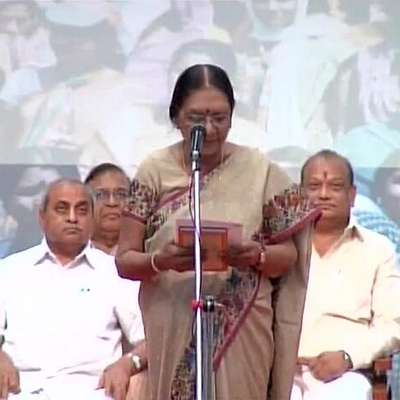
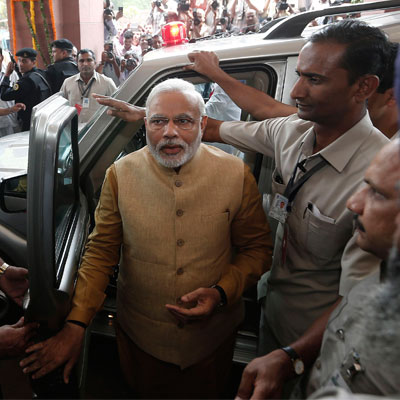
 Handout picture released on May 17, 2014 by the Egidio Feruglio Palaeontological Museum showing a
Handout picture released on May 17, 2014 by the Egidio Feruglio Palaeontological Museum showing a
 Sunday’s win was also Djokovic’s 19th career Masters title and his 19th win against Nadal in 41 meetings.
Sunday’s win was also Djokovic’s 19th career Masters title and his 19th win against Nadal in 41 meetings.
 Strutting
around a hotel room in Dubai, debutant Tiger Shroff seemed very excited
about his first visit to the city. He told City Times that he wished he
could stay longer to learn more about Dubai and see the big hotels
Strutting
around a hotel room in Dubai, debutant Tiger Shroff seemed very excited
about his first visit to the city. He told City Times that he wished he
could stay longer to learn more about Dubai and see the big hotels 

 The firing along the LoC came a few hours after Army troops had foiled
an infiltration attempt by terrorists in Bhimber Gali area of adjoining
Rajouri district.
The firing along the LoC came a few hours after Army troops had foiled
an infiltration attempt by terrorists in Bhimber Gali area of adjoining
Rajouri district.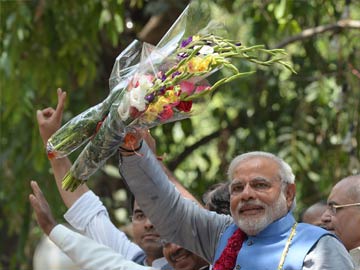
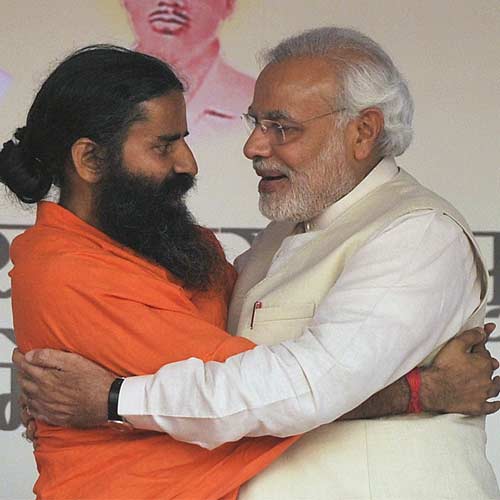







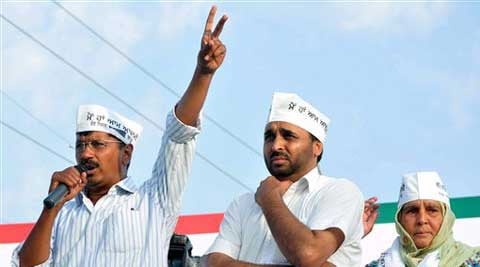 The Delhi Assembly elections held in December last year had seen the AAP winning 28 seats.
The Delhi Assembly elections held in December last year had seen the AAP winning 28 seats. 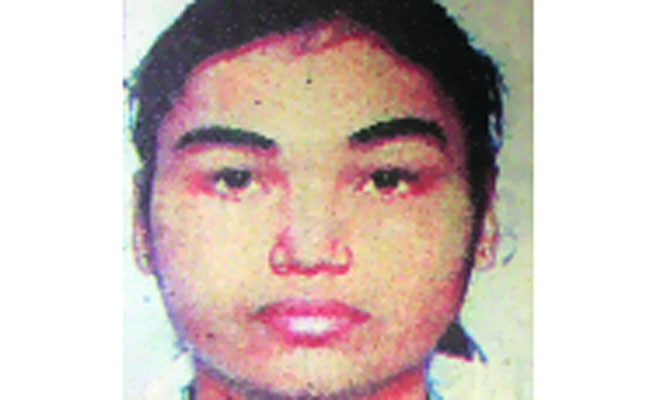

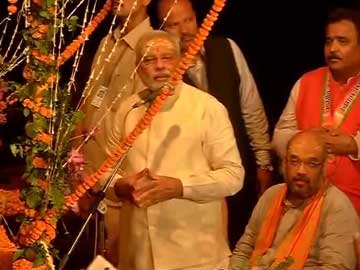



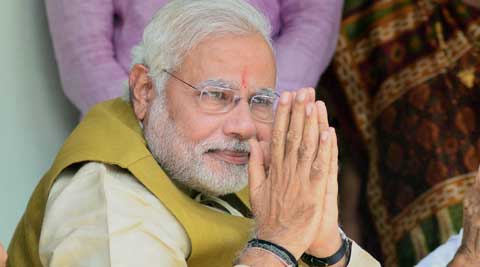 If Modi was indeed anguished during Gujarat riots, he bounced back fast. (PTI)
If Modi was indeed anguished during Gujarat riots, he bounced back fast. (PTI)